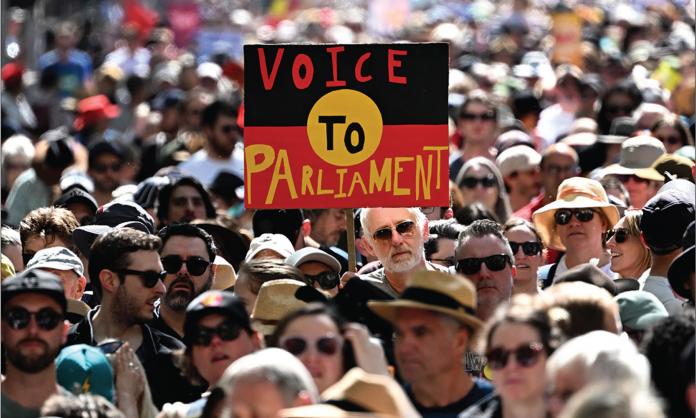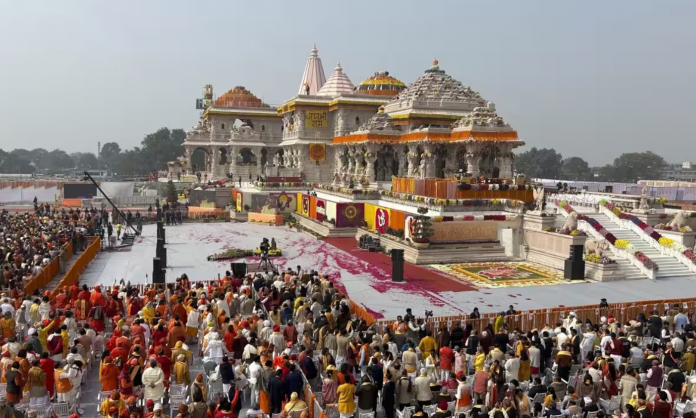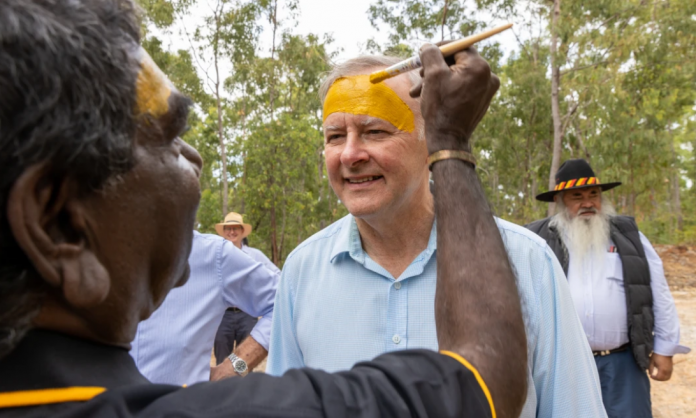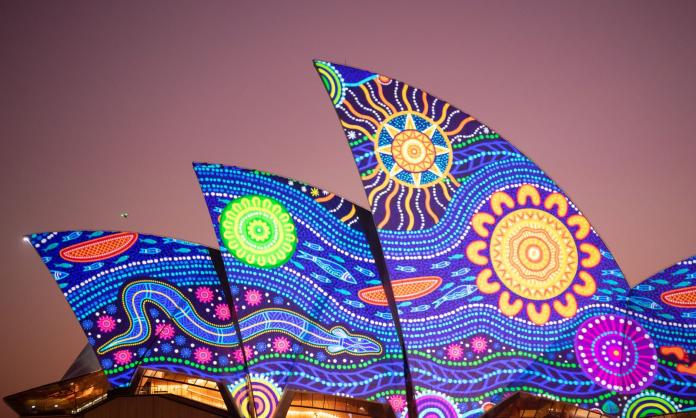After waging a campaign of racist lies for the last six months, the No campaign has achieved its goal.
As was widely predicted in the last months, the proposal to establish an Indigenous Voice to Parliament has been defeated. Smashed would be more accurate, the results being even worse than many polls predicted. Not a single state voted in favour of the proposal.
Unsurprisingly, rural, traditionally right-wing seats voted most strongly for No. But the No vote wasn’t confined to these areas; many traditional Labor seats also voted against the Voice.
The defeat is a significant victory for the racist right wing of Australian politics. They successfully turned what initially seemed to be an uncontroversial bipartisan exercise in symbolism into a purportedly terrifying Trojan horse that would “divide the country”, “undermine democracy” and “re-racialise” the nation.
To achieve this, they mobilised the most significant anti-Indigenous campaign in years, drawing on and amplifying longstanding racist attitudes towards Indigenous people. In the process, they shifted mainstream discussion in a much more openly racist direction.
It is now more acceptable for right-wing politicians to claim, as Jacinta Price has, that colonisation had only “positive outcomes” for Indigenous people; or that “most Indigenous Australians are doing fine” and those who aren’t need to stop being “angry and aggrieved”—as Warren Mundine did in a Press Club speech; or that supporting Indigenous rights is an “expression of the madness of identity politics”, as Peter Dutton does.
The underlying argument of the No campaign—that Indigenous people do not suffer from racism and so shouldn’t get “special privileges”—has been loudly and proudly asserted on the airwaves, media outlets and Facebook pages of bigots across the country.
After a decade in which there has been a steady increase in support for Indigenous rights, the victory of the 2017 marriage equality plebiscite, the large climate protests of 2019 and last year’s downfall of an extremely unpopular conservative government, this has been a significant win for the conservative right.
In the aftermath of this debacle, we must also look critically at the Yes campaign—and the Voice proposal itself.
The Yes campaign was based on the premise that there would be bipartisan support for such a modest proposal, and that only far-right politicians such as Pauline Hanson would oppose it. When it became obvious that the Liberal Party was going to reject the Voice, the Yes campaign and the Labor Party seemed to hope naively that maybe this would work in their favour—perhaps the Liberal Party would be divided and a hard No stance would leave it isolated from popular opinion.
When this didn’t happen, the Yes campaign floundered, deluding themselves that the polling was wrong or that there would be a last-minute break of undecided voters to the Yes camp.
As support slipped away and the right went on the attack, the Yes campaign and the Labor Party refused to fight back. Marcia Langton, a conservative Indigenous academic who supports the Voice, was viciously attacked in the media for stating the bleeding obvious: that the No campaign was racist.
Rather than defending her, Labor politicians said that Langton had misspoken because she had been traumatised by racism—in other words, “Don’t listen to her, she’s crazy”. And when a group of left-wing activists protested outside a No event in South Australia, Anthony Albanese and Yes campaign director Dean Parkin condemned the protesters for “nasty behaviour” and undermining respectful debate.
Every day, a new racist scandal about the No campaign was exposed and, every time, the Yes campaign meekly called for everyone to just get along and be nice. Even as the results came in on referendum night, the more progressive Yes campaigner Thomas Mayo could criticise the No campaign for being dishonest and disgusting, but couldn’t bring himself to call it racist.
Calling out the racism of the Liberal Party and the broader No campaign might not have changed the referendum result. But if you are going to lose, it is better to go down fighting rather than pathetically calling on your supporters not to be nasty to your opponent—particularly when that opponent was unleashing such a vile assault on one of the most oppressed groups in Australian society. At the very least, taking a firm stand would have sent a message to supporters of the Voice of the need to fight against racism, not just meekly endure it.
It isn’t surprising that the Yes campaign and the Labor government refused to do this. The Labor Party has been up to its neck in racism. It is Labor state governments that are locking up Indigenous kids, undermining land rights to help fossil fuel companies and entrenching economic inequality. Federal Labor is obsessed with symbolism precisely because genuine and meaningful progress for Aboriginal communities would entail a challenge to the ALP’s capitalist friends.
The Yes campaign will go down in history, alongside Brexit and Hilary Clinton’s 2016 presidential bid, as yet another embarrassing failure of liberal centrist politics.
But the sad reality is that those who will suffer most from this defeat won’t be Labor politicians or Yes23 campaign directors, but ordinary Indigenous people. The unchallenged racism unleashed by the No campaign is a setback that will likely make it harder to fight for Indigenous rights.
Australian politics is in flux. A year and a half into its term, the federal Labor government still retains broad, if shallow, electoral support, which hasn’t yet been particularly affected by the referendum. Labor strategists believed that they could romp home in the next election following a Voice victory, use the momentum to hold another successful referendum on the question of Australia becoming a republic and marginalise the Liberal Party into the 2030s. Those plans have now been dashed, and as the memories of the Morrison years fade, there are forces at work that could undo the Labor government. First and foremost is the cost-of-living crisis, an issue that the No campaign was able to tap into.
The referendum has revealed that, despite modern conservatism being at odds with young voters and those in some traditional right-wing electorates, the Liberal Party remains a significant force in Australian politics. Its decision to campaign hard for a No vote was decisive in tanking the Voice. It can still rely upon its many deep ties with ideologically driven wealthy individuals, the bulk of the socially conservative middle classes and powerful establishment institutions such as the Murdoch media.
Internationally, the Liberal Party is hardly isolated in this regard; centre-right parties have jagged sharply rightwards in recent years in country after country. Just look at Trump’s Republicans or the conservatives in the UK, who in recent weeks have openly embraced conspiracy theories about fifteen-minute cities, condemned migration as an “existential threat” to the British way of life and asked far-right ideologue Nigel Farage to rejoin the party.
There is a very real danger that Australian politics will become dominated by a fight between a weakened neoliberal Labor government and a rabid right-wing opposition.
In moments like this, we can’t slip into despair. We need to build an alternative to the bankrupt politics of the moderate centre—an alternative that takes on, rather than capitulates to, the vicious lies of the right. The Yes campaign’s strategy of lecturing everyone about the need to be polite and moderate has ended in a total failure. They claimed to be savvy political operators but proved themselves to be anything but. And worst of all, they lost without trying to fight the right, without challenging their racist lies, and so have done nothing to galvanise any section of the population in defiance and lay the basis for future anti-racist struggles.
The struggle for Indigenous justice will continue, but if we are to start to turn the tide against the racists, then we will need to organise a serious anti-racist fight back and draw some sharp lessons from the Yes campaign’s defeat.











